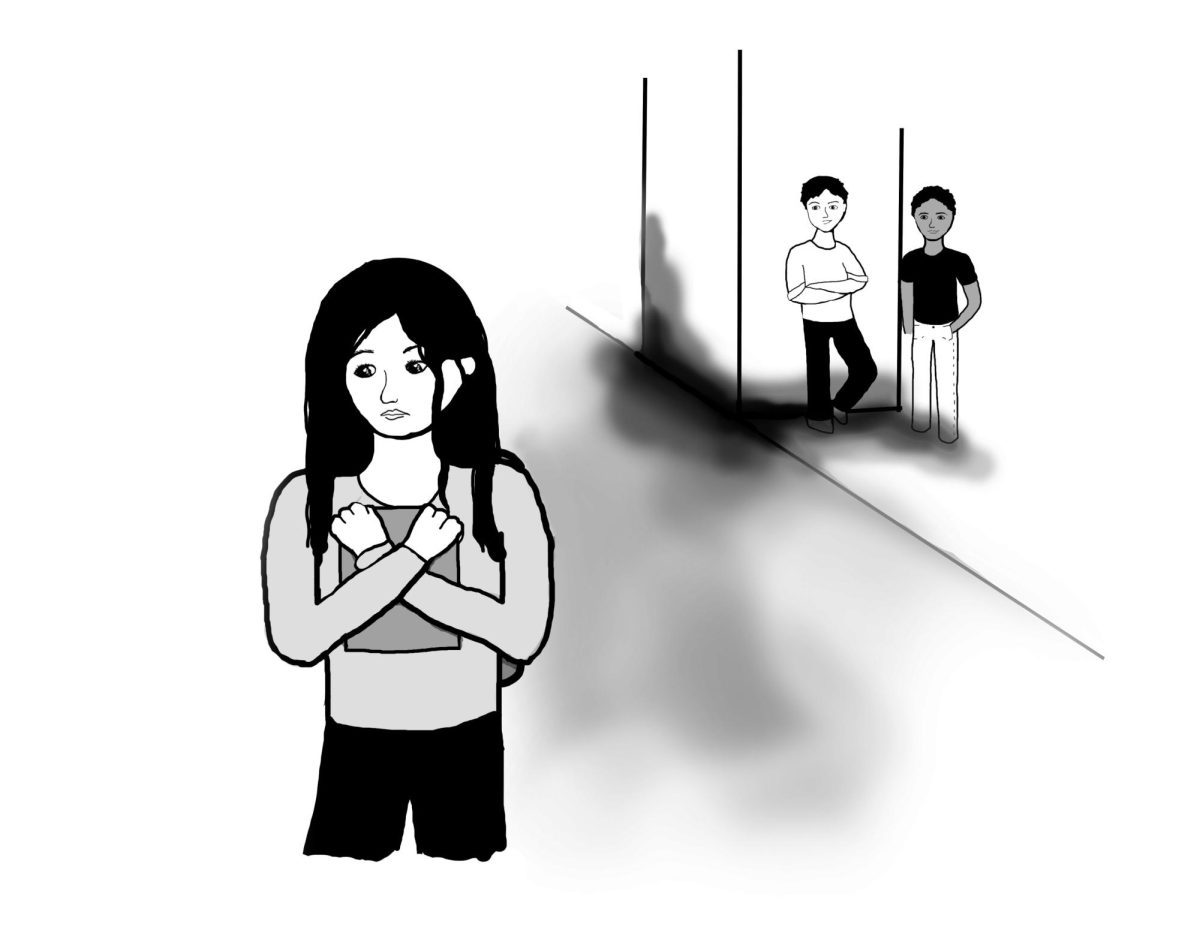Last summer, senior Kali Stoehr and the other students researching mouse brains under Assistant Professor of Biology Thomas Knight encountered an unusual problem: Their mice were not reproducing enough to support continued research. The mice started reproducing around the end of summer, which meant the researchers had a higher workload during the school year than planned.
Stoehr is one of many Whitman students who do some type of large research project before leaving Whitman. Often students in the sciences work in labs run by professors, like the Knight lab in which Stoehr researched, but non-science students also do research designed to further academic thought in their discipline as well.
Stoehr experimented on mice to study the superior colliculus, a part of the brain involved in eye movement. Knight’s research as a whole aims to develop a model of the mouse brain, which would allow future research on neuromuscular diseases like Parkinson’s.
Senior Kevin Chung also did scientific research while at Whitman. In his case he worked with Assistant Professor of Chemistry Marion Gotz on developing a chemical compound that could treat Chagas disease, a research project that, like Knight’s, will continue even after he and two other students who worked on it graduate.
While Stoerh and Chung completed their research for their senior theses last summer, junior David Friedman plans to start researching his history thesis this summer. He chose President Carter’s Middle East policy as a topic because he felt that area of history was open for new interpretation and analysis. For his honors thesis, he hopes to write up something original.
“My goal is to write something that is so dynamic, so real, innovative and important that at the least I could send it to a renowned professor who was interested in the field. At the most, maybe get a smaller version of my thesis published by ‘Diplomatic History’ or by another academic journal,” he said.
However, research rarely goes as planned. Stoehr and the other researchers of the Knight lab had to navigate various surprises.
“Like with all research, we ran into some problems over the summer: we had trouble getting the mice to reproduce, which cut into our sample size, we had to design some of our own equipment with the supplies available, and our advisors had a baby in the middle of summer,” said Stoehr in an e-mail.
Chung also found that the research was not quite what he expected.
“When I first got into the project I thought it would be an easy, quick, ‘Oh my gosh, I’m going to save the world’ kind of thing,” said Chung. “Obviously it’s a lot more complicated that that.”
Chung’s research, however, was helped along by the recent purchase by the school of an Nuclear Magnetic Resonance machine, which allowed his group to more easily tell what chemical they had produced.
“It helps a lot, because every time you make a compound you end up with this goo, right, and you have no idea whether you made the thing or not. We finally have the machine that will give us a spectrum that tells us that we have the thing that we want or we don’t have the thing we want, which is great, because then I’m not working blind,” said Chung.
While Friedman will be the only one of the three to not do scientific experiments as part of his senior thesis, all three students had to or will spend a lot of time reading journals in order to write their theses. In particular, Stoerh finds herself continually searching for papers to cite in her final thesis to support the claims she did not directly find.
Friedman will also be spending much of his time this summer in libraries. While he plans to do research for his senior thesis, he also has job as a research assistant to Robert Allen Skotheim Chair of History David Schmitz, studying American nationalism. The job will allow him to travel across the country, from the National Archives in Washington DC to the Jimmy Carter Library in Georgia.
This is not the first time that Friedman has spent his summer doing research. Last year, he assisted a University of Washington history professor by finding and summarizing secondary sources. He believes that his work with Schmitz will involve more primary source material.
“Finding the sources is the most stressful part, because you’re worried about finding the right thing; you’re not sure if you’re going to get it, you’re not sure if its going to answer the question you have,” Friedman said.
However, one part of science research that Friedman will likely miss out on is the community built from the interactions of lab partners.
“I think my favorite bit of the research would just be the interactions. One, seeing Professor Gotz in a different light than as a professor and a teacher,” said Chung. “And the interactions between lab mates, because organic chemistry is kind of a long lab.”
Chung has been accepted into Jefferson Medical College, while Stoehr is going to work for Teach for America on a South Dakota reservation. She’s considering going into library sciences for graduate school. In particular, she wants to be a medical librarian.
“The process of doing research at Whitman has really taught me about how to look at science and how much work goes into proving one small scientific fact,” said Stoehr.
Friedman has not decided on what he’s going to do after Whitman. He is considering going into the foreign service and graduate school.
“My interest in foreign affairs, the foreign service and being involved in that really came from my studies here,” said Friedman.










